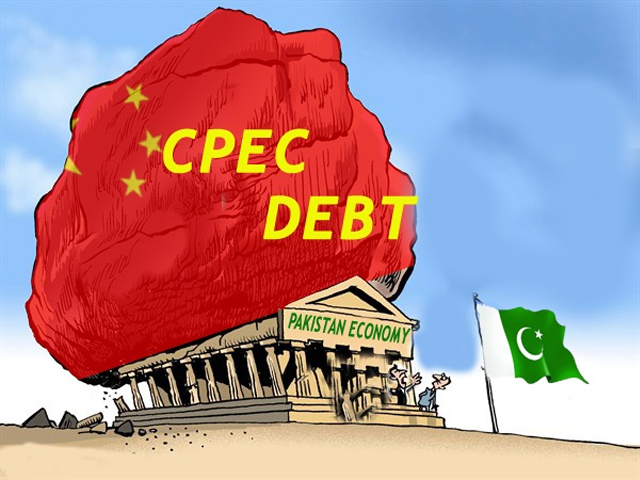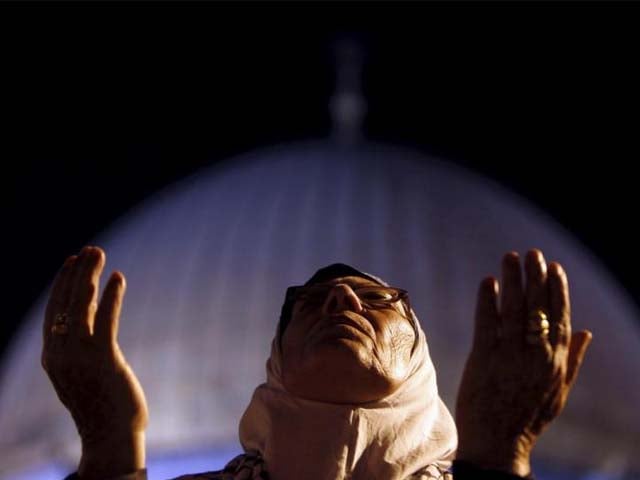
Imran Khan's strategy: End corruption
It is the illegal use of power by politicians and bureaucrats that deserves immediate attention in Pakistan.
Pakistan Tehreek-i-Insaf leader Imran Khan has pledged in his political manifesto to eliminate major corruption in Pakistan within his first 90 days as prime minister. This is a tall order and was being derided by Nawaz Sharif yesterday as impractical and naive.
Despite his tenure in office, Sharif has failed to understand the different modes and echelons of corruption in Pakistan. Khan intends to target specific government level corruption which is most damaging in a series of enforceable reforms based on forceful transparency and assertive accountability.
Imran Khan is right to see the fight against corruption as a priority and instead of criticism he should be receiving national support for the huge task ahead. Corruption in Pakistan is widespread, systemic and deeply entrenched at all levels of society and government and is a substantial obstacle to the country’s development.
With losses due to corruption in Pakistan being estimated at Rs8500 billion, it has been described as “plunder” in a country where people still lack the most basic needs. Pakistan’s main anti-corruption body, the National Anti-Corruption Bureau (NAB) admitted in 2008 that Rs200 billion are wasted through corrupt practices at higher government levels with more billions locally. Petty corruption in the form of bribery is prevalent in law enforcement, procurement and the provision of public services; widespread financial and political corruption, nepotism and the misuse of power are rife.
Transparency International (TI), a Berlin-based organisation that puts out an annual Corruptions Perception Index (CPI), attributes corruption to autocratic governments, sprawling government bureaucracies of under-paid, under-trained civil servants and a lack of media freedom to keep track of fat government contracts and easy money. TI ranked Pakistan 139th among 180 countries in its 2009 CPI.
Pakistan has undertaken anti-corruption proceedings over the years but has avoided scrutiny of senior officials. The National Reconciliation Ordinance (NRO) issued by the former President of Pakistan, General Pervez Musharraf, on October 5, 2009, granted amnesty to politicians, political workers and bureaucrats who were accused of corruption, embezzlement, money laundering and even murder. A list of 8041 individuals who benefited from NRO included 34 politicians, further reducing public trust in leadership and encouraging the spread of corrupt practice at federal, provincial and local government level. It was declared unconstitutional by the Supreme Court of Pakistan on December 16, 2009, throwing the country into a continuing political crisis.
Pakistan’s citizens expect to pay bribes to obtain services such as electricity, health care and education and in dealings with the police. In the absence of a democratic and effective taxation authority, bribery can be seen as a form of illegal taxation in a country where the national budget is inadequate for the delivery of social services. This is damaging to the social fabric of society but it is low-level petty corruption nevertheless.
It is the illegal use of power by politicians and bureaucrats that deserves immediate attention and urgent scrutiny in Pakistan and Imran Khan recognises the need to put an end to these predatory practices that waste resources that should be invested for the good of the country.
Just one example of the direct impact of increased corruption is the rise in the prices of food commodities which according to the latest official data of Federal Bureau of Statistics, have increased up to 120 per cent in one year.
Lack of transparency and accountability have allowed the awarding of government contracts and licenses to one’s family, relatives or to corporations where one is a shareholder, allowing for private greed to overrule the public good. This type of corruption at a governmental level can be tackled relatively easily by enacting conflict of interest and transparency legislation – and enforcing it aggressively.
Imran Khan has already set an example and proposed that all politicians should also declare their assets.
A short blog like this is not the most effective medium to convey Imran Khan’s strategy in its entirety, but I can assure the naysayers that a comprehensive and effective policy is being developed alongside a strategic implementation plan. This is a powerful first step in clearing up corruption in Pakistan, vital for Pakistan’s survival as a democracy and hopefully the shape of government to come.
Read more by Azeem Ibrahim here or follow him on Twitter @AzeemIbrahim




COMMENTS (43)
Comments are moderated and generally will be posted if they are on-topic and not abusive.
For more information, please see our Comments FAQ